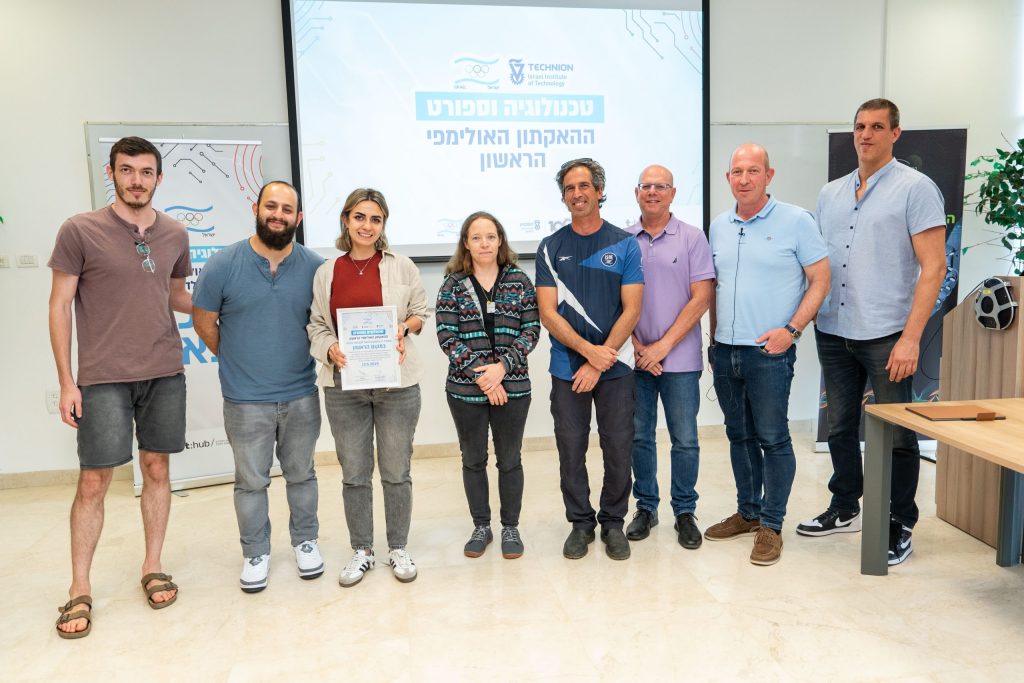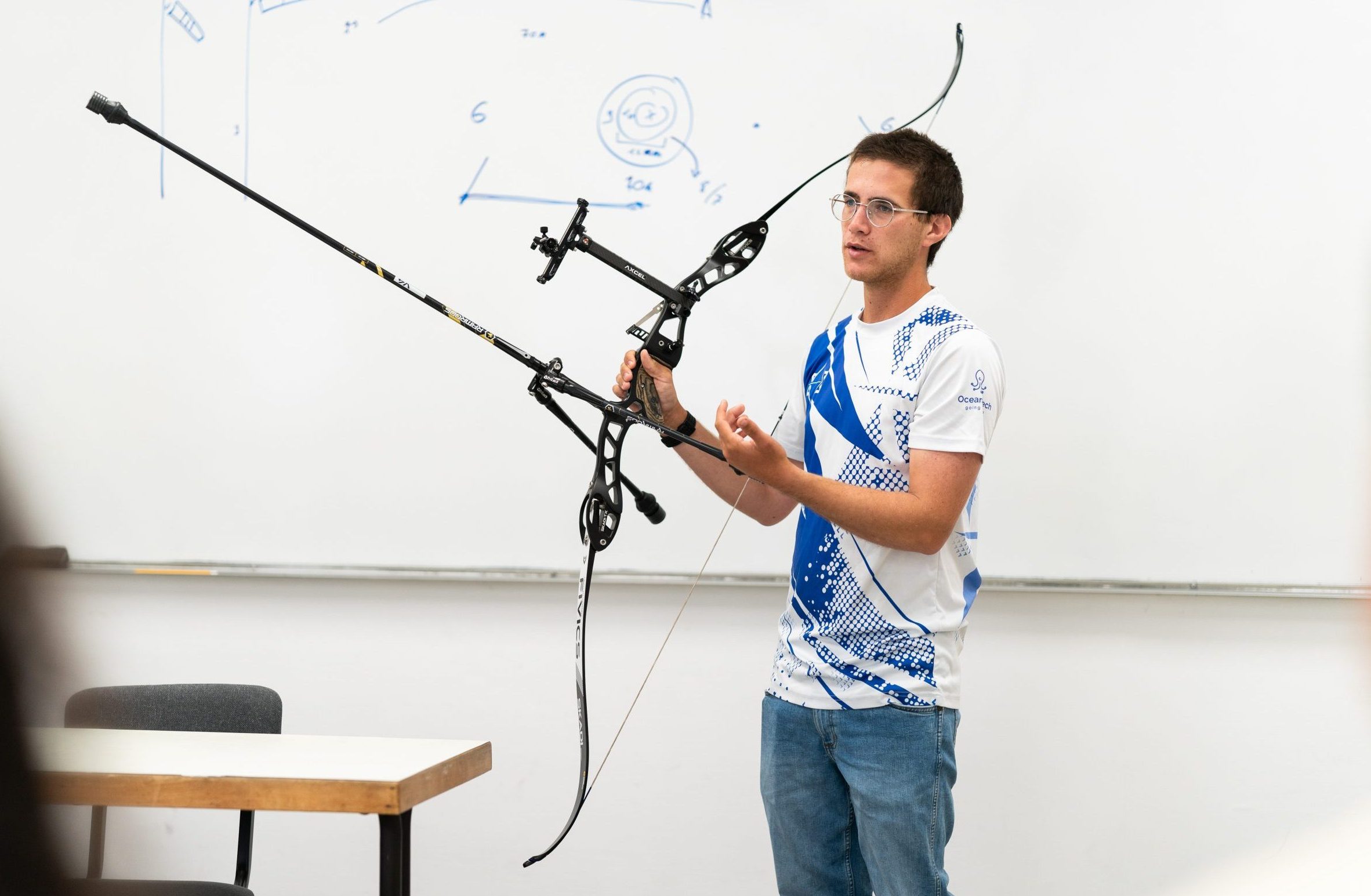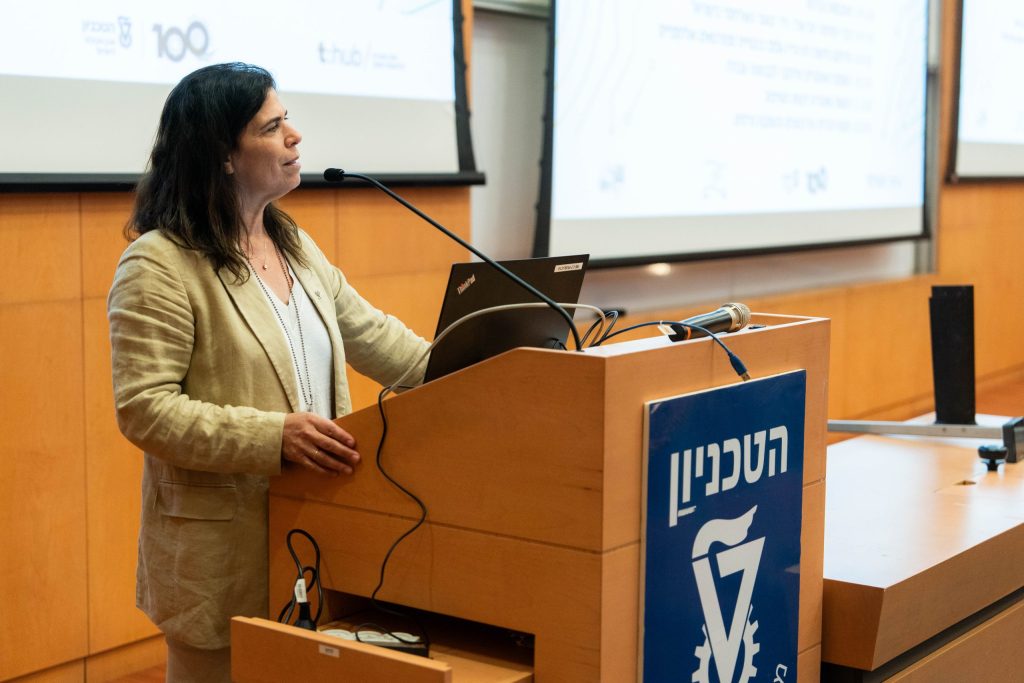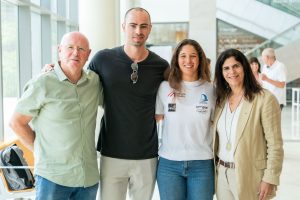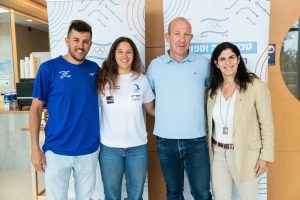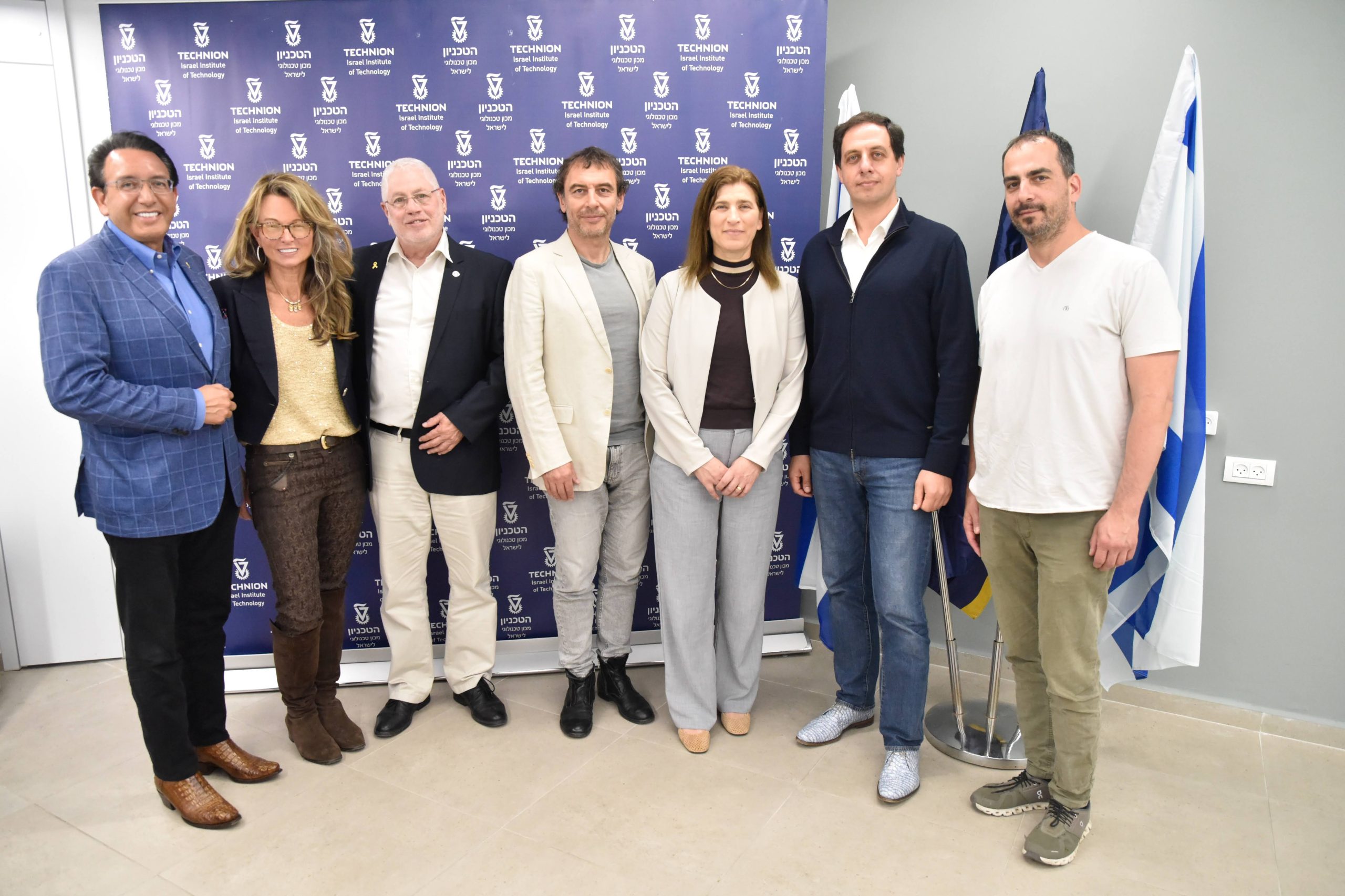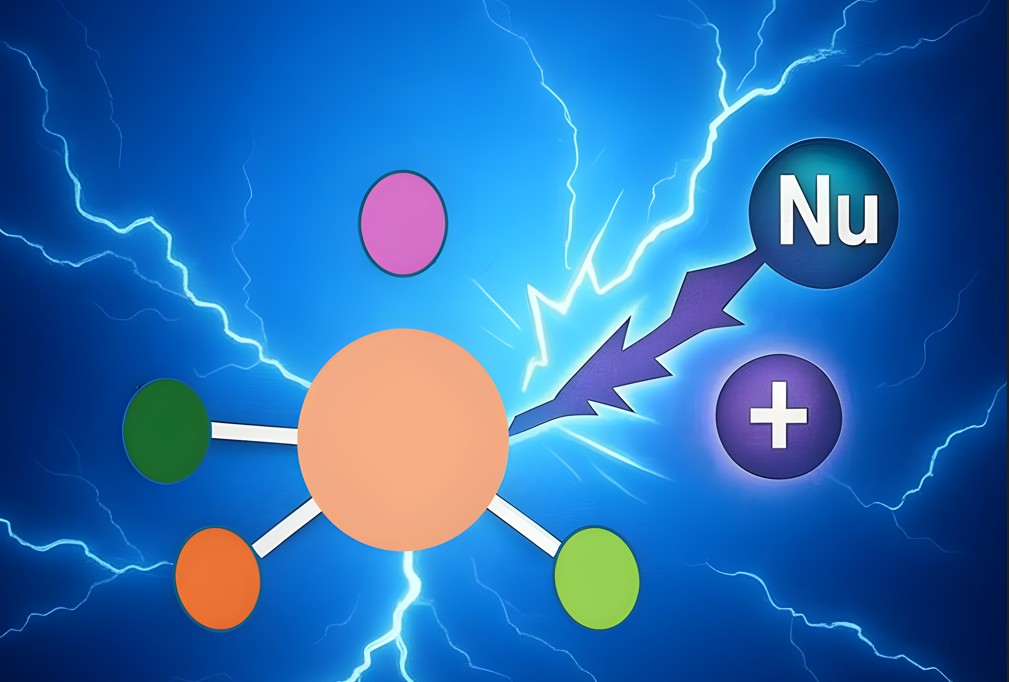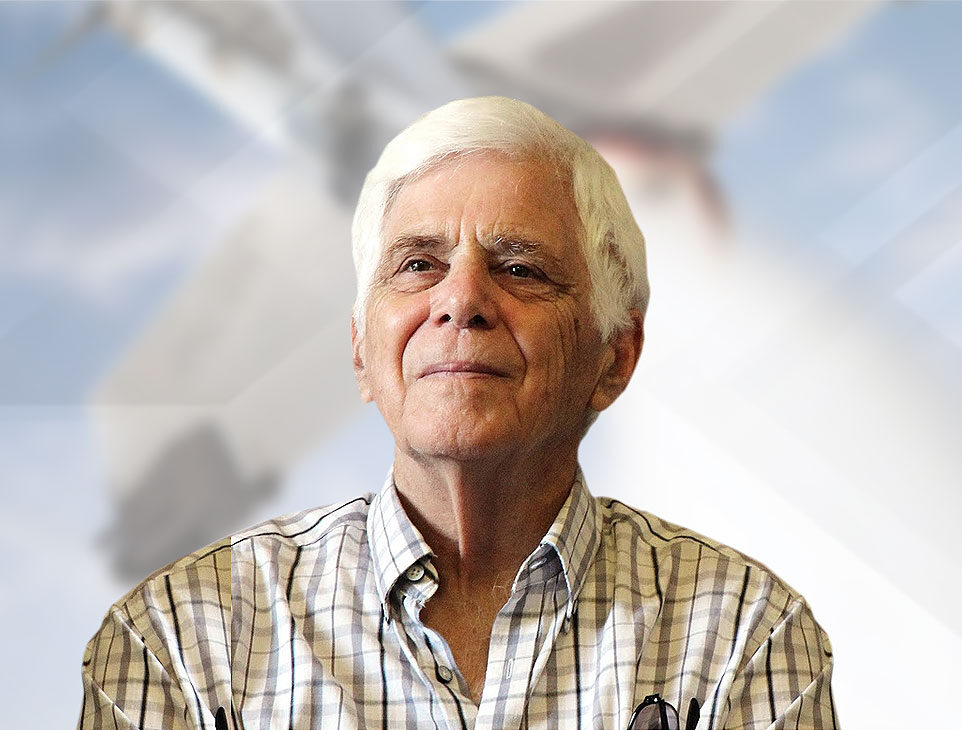Towards the Los Angeles 2028 Olympics – Science and Engineering in Service of Israeli Sports
First-of-its-kind summit at the Technion: Olympic Innovation Event in collaboration with the Olympic Committee of Israel
Olympic medalists, senior coaches, Technion researchers, and students gathered for the first-ever hackathon connecting sports and innovation to develop blue-and-white technologies that provide Israeli athletes with a competitive advantage.
On Tuesday, May 13, 2025, the Technion hosted its first Olympic Innovation Event – a joint initiative between the Technion Faculty of Mechanical Engineering and the Olympic Committee of Israel. It was held as part of the t:day Entrepreneurship Day events and within the framework of the Technion’s centennial celebrations. The event featured the first-ever hackathon connecting sports and innovation to develop Israeli technologies, and aiming to give Israeli athletes a competitive edge for the Los Angeles 2028 Olympic Games. Held at the Faculty of Mechanical Engineering, the event was led by Faculty Dean Prof. Alon Wolf and the Olympic Committee’s Scientific Director, Muli Epstein.
The hackathon was organized to expand research activities at the Technion after the Israeli delegation won an unprecedented seven medals at the Paris 2024 Olympics. During the 2024 Games, Olympic windsurfers Tom Reuveni and Sharon Kantor, gold and silver medalists in the iQFOiL class, benefited from scientific-technological guidance from Technion researchers and advanced testing of surfing equipment to maximize performance at sea. Among the researchers who accompanied them were Dr. Arielle Fischer and Ph.D. student Raz Margi from the Laboratory for Bio-Motion and Wearable Devices in the Faculty of Biomedical Engineering at the Technion, and Dr. Dana Solav and Prof. Alon Wolf from the Faculty of Mechanical Engineering. The researchers’ guidance was provided as part of the collaboration between the Technion, the Olympic Committee in Israel, and the Sailing Association.
The strategic collaboration formed in recent years between Technion researchers and the Olympic Committee’s training teams is already yielding impressive results across a wide range of sports, including windsurfing, archery, weightlifting, and more. Some 18 Technion students from various faculties and programs – such as Mechanical Engineering and Aerospace Engineering – are participating in the Olympic delegation’s preparations for the Paris 2024 Olympics. In addition to the aforementioned Faculties of Mechanical Engineering and Biomedical Engineering, the hackathon also featured the active presence of faculty members from the Faculties of Aerospace Engineering and Architecture and Urban Planning. All joined forces with the athletes to offer precise, creative, and smart blue-and-white solutions that will go from the laboratory to competition – and hopefully to the podium – at the Los Angeles 2028 Olympic Games.
Olympic medalist Kantor, who competed in Paris on a board with a custom-fitted fin and hydrofoil that underwent comprehensive mechanical tests at the Technion, was at the hackathon, alongside coach Shahar Zubari, archers Shahar Kleiner and Niv Frankel, Olympic swimmer Yakov Toumarkin, and fencing coach Maor Hatoel, a former researcher at the Technion’s Bioinformatics Unit.
Muli Epstein, who leads the Olympic Committee’s Innovation and Science division, said: “The vision driving the Olympic Committee in Israel is to place innovation and technological research at the heart of activities for Olympic athletes. We are working to create an environment where science, technology, and research merge with training and competition, with one goal — to maximize performance and stay ahead of the future. Alongside the classic Olympic motto ‘Faster, Higher, Stronger,’ we want to add two additional milestones that represent our path: More Precise and Smarter.”
The event was opened by the President of the Olympic Committee in Israel and silver medalist from the Barcelona Olympics, Yael Arad, who said: “The combination of the Technion and Olympic sports in Israel is a connection of excellence – an extraordinary connection between science and innovation and the edge of human capability. The successes in Paris belong to yesterday, and we are looking forward to the Olympic Games in L.A. in 2028. Our athletes are a source of pride and national resilience, not only here in Israel but also throughout the Jewish world and in America in particular. The hackathon is your opportunity as researchers to be true partners in the Olympic sports journey to the next successes. Just as scientists invest years to achieve research accomplishments, athletes also invest and achieve success through hard work and determination.”
Dean of the Faculty of Mechanical Engineering, Prof. Alon Wolf, echoed Arad’s remarks and stated that, “the Israeli Center for Olympic Sports Research, operating at the Technion since 2018, combines multidisciplinary research through which researchers and students develop, based on the real-world needs of athletes. This places the Israeli Olympic delegation at the forefront of global sports science and technology. The collaboration between the Technion and the Olympic Committee is already improving the actual performance of Israeli athletes, and it is of great importance to deepen it.” Prof. Wolf added that, “the first Olympic hackathon taking place at the Technion’s Faculty of Mechanical Engineering is much more than an innovation event – it is a declaration of intent for the next decade. It realizes a vision where scientists and athletes work side by side, and Israeli science and technology become the driving force behind the greatest achievements.”
Among the judges were Dr. Dana Solav from the Faculty of Mechanical Engineering, a former coach of the women’s surfing team and accomplished athlete, along with Prof. Alon Wolf, Gal Soffer, a senior executive at Intel and a member of the Olympic Committee’s Innovation Committee, and Muli Epstein.
The projects presented at the event focused on questions from the fields of sailing, windsurfing, swimming, fencing, and archery, and ideas were proposed for the development of “smart” equipment, advanced design, three-dimensional simulations, and dynamic calculations. During seven intensive hours, the student teams worked, with the guidance of coaches and the athletes themselves, on practical solutions that would help improve technique and refine the path to a medal. The winners at the event received prizes totaling 18,000 NIS: 7,000 for first place, 5,000 for second, and 3,000 for third place (two winners).
Photo Credit : Nitzan Zohar

